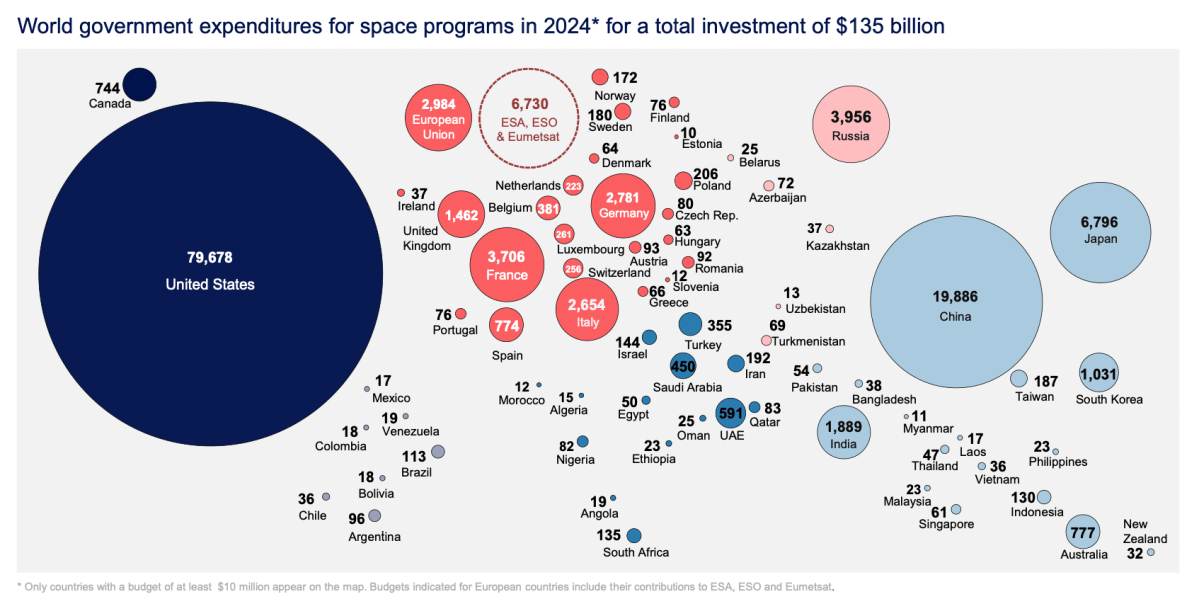WASHINGTON — Global government space spending hit a record $135 billion in 2024, highlighting the growing militarization of space and shifting dynamics among spacefaring nations, according to a new industry report.
The 24th annual Government Space Programs report by the consulting firm Novaspace shows government space budgets grew 10% from 2023, driven largely by defense- investments that reached $73 billion. The surge reflects mounting concerns about space as a contested military domain alongside traditional theaters like air, sea and cyber.
While the United States remains the dominant player with 59% of global government space spending, other countries like China are increasing their spending.
“The surge in government space budgets reflects the strategic importance of space,” said Charlotte Croison, manager at Novaspace. “Governments worldwide are not only expanding their capabilities to secure their assets in orbit but are leveraging space to enhance their geopolitical standing and foster economic growth.”
The report indicates this expansion goes beyond traditional powers. A growing number of emerging space nations are establishing dedicated space forces and enhancing their operational capabilities in areas like satellite communications, navigation, and Earth observation.
However, the astronomical growth may be cooling off. Novaspace projects government space budgets will stabilize with modest 1% annual growth from 2025 through the end of the decade. This leveling off reflects the maturation of programs launched during the recent surge and the need for nations to balance other budgetary priorities.
On the civilian side, human spaceflight programs continue to dominate investments. Nations are advancing both crewed and uncrewed exploration capabilities, though defense spending has consistently outpaced civil space investments since 2022.
The report underscores how space has evolved from a domain dominated by superpower rivalry during the Cold War to a complex landscape where multiple nations compete for military advantage while simultaneously cooperating on civilian projects.
